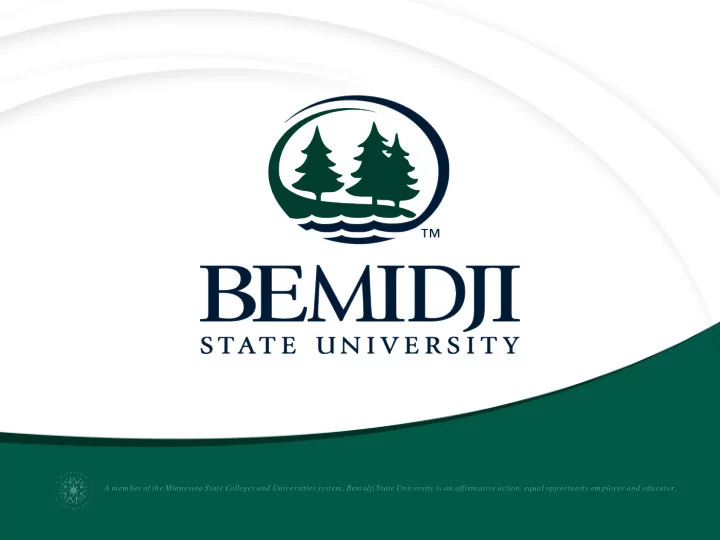

A m em ber of the Minnesota State Colleges and Universities system , Bem idji State University is an affirm ative action, equal opportunity em ployer and educator.
How do Native American Candidates Win Elections in Non-Native Districts? Opalina Peralta P O L I T I C A L S C I E N C E April 4, 2018 A m em ber of the Minnesota State Colleges and Universities system , Bem idji State University is an affirm ative action, equal opportunity em ployer and educator.
Background on Native Americans • In the beginning natives were not seen as equal to many colonizers. • Many environmental as well as land disputes were made between the two • Today Natives are not represented they make up 1% of the population but roughly 66% Natives are registered to vote. • This is important because in order to actively represent the nation we need to have more Natives in office.
Literature Review • There has been research in the obstacles that minority faces - • Kira Sombatmasu - Diversity candidate theory, meaning that a candidate is more likely to be diverse o in a Democratic district In diverse candidates there are more likely to be men over women o • Drury R. Sherrod – Maintaining cognitive consistency between their own position on issues and their o candidate preferences.
Analysis • I analyzed state legislative elections in which Native American candidates won. • Using the data from the 2016 National Census and from University of North Dakota, Professor Mark Trahant. • Creating an excel sheet breaking down the race, income, political party and share of the vote.
Share of The Native Winners Vote in Caucasian Districts Percentage of the Caucasian District
Representative Chuck Hoskins JR • District 6 in Oklahoma • Grew up in the area • Strong Military background • Elected member of the Cherokee National Tribal Council. • District voted Trump in the 2016 presidential election
Representative Peggy Flanagan • Grew up in the St. Louis area most of life • Strong DFL ties • Serves as Board of Directives of Native Progress • Minneapolis foundation • Part of the White Earth Tribe • District voted for Clinton in the 2016 presidential election
Representative Jamie Becker-Finn • Tied to the community • Grew up in the Cass Lake-Bena school district • Served in the AmeriCorps • Heavy ties to politics having worked as a Legislative Assistant at the Minnesota House of Representatives. • District voted Clinton in the 2016 presidential election • The district is in the suburbs of the cities
Representative Shane Morigeau • Born and raised in Montana as well as went on to higher education in Montana. • He was born in Missoula and grew up on the Flathead Reservation as a member of the Confederated Salish and Kootenai Tribes (CSKT). • The district is a majority college town • District voted Clinton in the 2016 presidential election
Representative Jeff Morris • Strong ties to the community • Strong in creating renewable energy • District voted Clinton in the 2016 presidential election • The County consists of 176 named islands and reefs • San Juan is a fishing destination, they are bordered with Canada by Vancouver.
Senator Kaiali’I Kahele • Grew up in a small fishing village. • In the national guard & combat vet pilot • Strong community ties • His father used to serve as the senator in the district prior to him. • District voted Clinton in the 2016 presidential election
Conclusions • That the districts that voted for natives, are the natives that mainstream themselves. • The candidates are tied strongly to the communities and they are able to relate to the majority • These would be the reasons that I thought that non natives would vote for natives.
Implications • Natives are running as primarily Democrat. • The Natives that do run are not tied to their Reservation – most are tied to the party or community in which they ran in. • The more native a district the more likely that a native candidate will be voted on. • There needs to be more Native candidates in order to have more data.
Recommend
More recommend